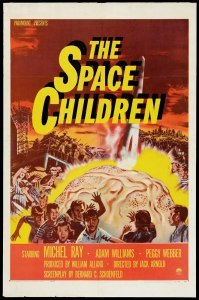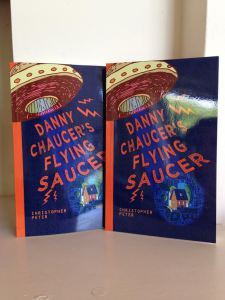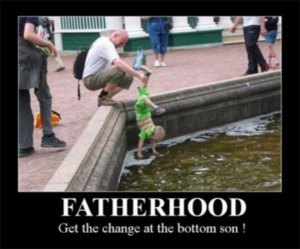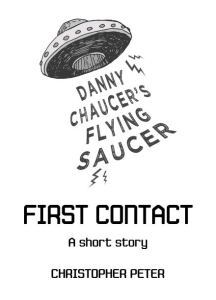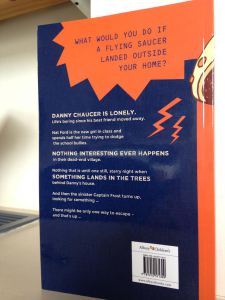Christopher Peter's Blog, page 4
October 2, 2015
Challenging Children: Long words or short?
As a writer of children’s books, I’m always concerned about whether my prose is pitched at about the right level for its intended readership. You know: are any of the words too long, sentence construction too complex, cultural references above their heads, subject matter too ‘adult’?
This is compounded by the fact that reading ability varies so much. Well it does for adults too, of course, but when your target audience is as narrow as 8-12-year-olds or thereabouts then you don’t have to be especially off-target to miss it. If the bull’s-eye is an averagely competent ten-year-old reader, then your book may be beyond a struggling eight-year-old (at least without adult help), yet also not testing enough for a high-flying near-teen. (Then again, advanced seven-year-olds and some young teens might still be within range.)
For this reason (as for so many others) the sharp eyes of beta-readers and editors are invaluable. Then again, I’m a firm believer that kids shouldn’t be patronised, and that there’s also scope to stretch them a little. Indeed, surely that’s part of the value of reading. If they never come across new words, for instance, how will their vocabulary grow?
An example: an editor of Danny Chaucer’s Flying Saucer picked up on the word ‘sumptuous’, used to describe an especially spectacular starry sky beheld by Danny one night. Would your younger readers know what that means, they wondered? Might a simpler word be used in its place?
I should emphasise that I did take that editor’s advice probably 90% of the time; and even when I didn’t, I always thought carefully before rejecting it. I’m certainly not suggesting they were wrong to ask the question. They wouldn’t be doing their job if they didn’t. But ultimately, the author themselves has to make the decision. The editor’s opinions are always to be respected (you’d be wasting both their time and yours if you didn’t) but they are never the last word.
In the end, sumptuous stayed. I love that word. It’s so, well … sumptuous. An extravagant, opulent, overflowing kind of word; but crucially, for me it was the very best one for the job in that particular sentence. Another place, another time, I might have agreed with the editor and changed it.
Of course, as I said above, it’s a matter of balance. Too many new, long or challenging words might discourage the young reader. The prose should be accessible; and after all it’s there to tell the story, not get in the way, jump up and down and shout, ‘look at me, aren’t I clever!’. Too many pauses to consult the dictionary are bound to obstruct the reading experience and prevent the child’s full immersion in the adventure.
It’s a similar thing with sentences. I tend to keep them short and simple more often than not. But the odd longer, more complex sentence is no bad thing, and the variety should serve to make the text more interesting – and, yes, challenging. In that sense, it’s little different from adult fiction.
If the young reader gains in knowledge and ability through your book, that’s a wonderful thing. I’d love to think that some kid, somewhere, might one day say, ‘Dad, thanks, that dinner was sumptuous!‘, just because they read Danny Chaucer’s Flying Saucer.


September 18, 2015
Space: The Next Frontier in Children’s Books?
This is a guest post I wrote recently on the Unleashing Readers blog.
(Never heard of this movie BTW … must check it out!)


August 30, 2015
Twitter: the Dark Side …
Last time I wrote of my new-found enthusiasm for Twitter and many of the things I’ve come to appreciate about it. But every silver lining has a cloud, and so …
140 characters. That limit is so frustrating at times. I couldn’t operate with Twitter as my sole social media outlet, but then there’s no need to. It’s just not suited to everything. You can always link to something more substantial, like a blog post.
Content. I had to unfollow a couple of people who looked initially OK but then re-tweeted some stuff that made me shudder. Also I feel I have to be careful being a children’s/YA author, not only with what I write but also things I choose to re-tweet or favourite.
Disposability. It doesn’t take long to churn out 140-character tweet, and there are an awful lot of them. A tiny proportion linger on for a while in the blessed afterlife of the viral, but the great majority have pitifully short lives, forgotten and ignored.
Selling. Lots and lots and lots of people desperate to sell lots and lots and lots of stuff. Which is fine in a way – and of course I want to sell some books, so I can hardly point the finger – and it’s not too hard to filter out what you don’t want to see, but …
Paid / sponsored content appearing in my feed, from organizations I don’t follow. Ugh.
Expressing an opinion is fine. More than fine. Obnoxiousness, intolerance, pitchfork-waving, smug self-righteousness, sheer rudeness and lack of respect, all behind the cloak of anonymity or distance … not so OK. But none of this is confined to Twitter. Social media didn’t turn people into jerks, it just made it easier.
Following. The irony of the contradiction between having / wanting 10k followers and any reasonable definition of ‘social’ is never lost on me. Most people, it seems to me, don’t interact in any meaningful and/or ongoing way with the majority of people they ‘follow’ or ‘follow’ them. But again that’s not just a Twitter thing, it’s ‘social’ media in general. Meaningful and/or beneficial associations and even friendships (and sometimes more) can and do arise from social media contact, of course. But it’s kind of difficult to do that with 10,000 people (not that I have that particular problem).
And in a similar vein, I’ve no idea how people can ‘sell’ me 1,000 ‘followers’ for $X. Not sure I want to know either. Not only is that cheating, it’s surely also self-defeating. How can people truly ‘follow’ you without making a conscious personal decision to do so? How much are such ‘follows’ really worth?
That’s enough rumination on Twitter for now. But I’m also using it to research a future book – more on that later. In the meantime, I’m on Twitter here.
Do you use Twitter? What for? Does the good outweigh the bad for you, or the other way around?


August 25, 2015
Life, and Twitter
‘Twitter?? Aagghh!!’
I’ve taken a break from this blog for a few weeks. This wasn’t exactly planned; it just happened, and there were two main reasons.
First, the usual: life and other stuff. Work, family. Summer. Writing: I completed the second draft of the next book in the Danny Chaucer’s Flying Saucer series, and then got it critiqued. Then there was marketing activity and obtaining reviews for DCFS.
However the second reason is more specific, and new: Twitter. Yes, after many years of resisting the allure of the tweet, I’ve finally succumbed. For a long time Twitter seemed to me the very embodiment of superficiality. I mean, how much of any substance or nuance can be said in 140 characters or less? I thought its main function was to enable celebrities and politicians to make asses of themselves more quickly and efficiently than ever before.
But finally, in my classic late-adopter style, i.e. somewhat later than the rest of the planet, I signed up. And much to my surprise, after a slow start, I’ve kind of got into the spirit of it. This is what I like about Twitter:
140 characters. It can be challenging to fit what you want to say into that tiny space. But at least it’s quick, which is no small bonus in today’s hectic world. You can spend ages crafting a blog post, but it’s practically impossible to expend too much effort on a tweet. And like any limit it can encourage brevity and creativity, to focus on the very essence of what you want to say.
Content. Twitter is like the Internet in microcosm. Sure there’s piles of disposable junk and slicks of sleaze floating on an ocean of irrelevance. The banality of endless self-promotion is a bigger issue than the self-righteous pitchfork-waving types who tend to dominate public perceptions of Twitter, but the latter are certainly there. Yet among all that there is genuine humanity, wit and originality. There is some truly fascinating stuff being tweeted. You just need to filter out the rest as best you can. And …
Diversity. It’s the beauty of the Internet: whatever you’re into, or do, or think, you’ll find others who share your passions. And people who like to read books like the ones you’ve written, if you can reach them. Which brings me to …
Marketing. It’s quick and easy to sprinkle your output with links to reviews of your books, or to blog posts, or updates. But note ‘sprinkle’ not ‘drown’ (see ‘endless self-promotion’ above).
Exposure. If you tweet regularly and don’t just self-promote or re-tweet the work of others the whole time, people will follow you, and at a faster rate than I’ve experienced on WordPress. Of course, ‘follow’ doesn’t necessarily mean all those people will hungrily devour every missive you churn out thereafter, let alone buy your books. In fact, in most cases it almost certainly doesn’t mean that. But at least it gives a greater chance of a bigger audience than you might otherwise have.
The look. There’s not a lot you can do to customize a Twitter page, and what you can do is dead easy. You might see that as a drawback, but I like it. It’s sort of democratic. It means my Twitter page can look as professional as those of celebrities and corporations. Unlike websites or even WordPress blogs, where at least some time, design expertise and/or money has to be invested to make it look at least reasonable, let alone stand out.
Access. I was bowled over to get a direct message from one of my fave authors, Erin Kelly, after I mentioned her in a tweet. I can’t pretend I’m now a friend of the stars, but Twitter gives a unique opportunity for direct contact with people you wouldn’t otherwise have a hope of encountering.
But of course with the smooth comes the rough. Next time I’ll ruminate on some of the things I’m less enthusiastic about. In the meantime if you’d like to check me out on Twitter, click here.
Do you use Twitter? What for? How do you feel about it? Are you an old hand or a recent convert like me?


July 5, 2015
Danny Chaucer’s Flying Saucer has finally taken off
OK, I think I’ve used the ‘taking off’ pun before, probably when the e-book was published. But now the paperback of Danny Chaucer’s Flying Saucer is here too. I mean I now know this for sure, having seen and handled copies myself and not just seen pictures of them.
Well, it’s available on Amazon.co.uk anyway. On Amazon.com it’s still only available on Kindle (and I guess that’s also the case on all the other assorted Amazons too, though I haven’t checked them all).
Having got this milestone safely out of the way, I’ve now turned my attention back to the second draft of the second book in the series. Which I’d better get back to right now.


June 21, 2015
Fathers’ Day quotes
In celebration of Fathers’ Day, here is a link to some inspirational quotes. Well, some are inspirational and others are just funny. As the father of a thirteen-year-old daughter, I was especially amused by Mark Twain’s wise words (#3).
Fatherhood can be so underrated, and it’s true that some men fail to take this awesome responsibility as seriously as they should. But it’s always meant a great deal to me, as a dad myself. I love being a writer, but being the best possible parent is much more important.
This has been reflected in some of my writing, with fatherhood an important theme in my first two books, Falling Girl and BASIC Boy. Both stories featured the character Robert Black, a man who often struggled to be a good parent but came through in the end despite his imperfections. I think there’s quite a lot of Robert Black in me.


June 20, 2015
Annoying! – or, Does it ever end?
So I’m feeling pretty pleased with myself. I’m sitting with the paperback of Danny Chaucer’s Flying Saucer in my hands, and I’m reading it to my six-year-old son (who’s already suffered an earlier draft so knows the story, but wants to hear it again which is nice).
The problem is, I have mixed feelings when reading the ‘final’ version of any of my work. I’ve come across too many problems, mistakes or typos in the past, blatant errors that I’ve somehow seen straight through in the previous gazillion times I’ve painstakingly gone through the flipping thing.
Even if I don’t see actual mistakes, I feel my fingers twitching when I read a particular word, phrase or sentence and think, ‘hmm, maybe that would read slightly better if …’. Once you’re conditioned to constantly edit your work, it’s hard to stop.
But anyway, today’s reading was going pretty well. No typos at least. And then on page 18 I come across the following sentence:
He decided not to mention the tree-talking Captain Frost to Mum – she had enough to worry about.
Nothing much wrong with that, right? Wrong. Danny first meets Captain Frost a few pages earlier. The problem is that he doesn’t know her name yet. He doesn’t actually learn she’s called Captain Frost until a few pages later.
And I know how this error happened: in an earlier draft, the first encounter between Danny and the Captain was somewhat longer and they learnt each others’ names. For various reasons, that scene was re-written and their conversation became a lot shorter. But I missed this particular reference to the Captain’s name between that scene and the next time the two characters meet.
So I guess you’d call it an error of perspective or context, or something like that. Anyway, it’s a mistake. Perhaps a fairly subtle one – and I take some comfort from the fact that none of the other people who’ve reviewed the book so far have pointed it out. But now I’ve noticed it I’ve just got to fix it.
Of course I can correct and upload the Kindle version pretty quickly and easily. As for the paperback – well there are already a few copies printed that have the mistake in perpetuity. There’s nothing I can do about that. (Maybe they’ll be valuable one day when I’m famous, right …?) But I can create a new printer file and ensure all new copies from now on are fixed. At least it’s on POD so it’s not like hundreds or thousands have been printed.
It’s got me thinking, though. How can I get better at spotting mistakes like these earlier? Is it just a case of going through it again and again and again? Maybe I should have paid for a final professional proofread as well as the earlier copy-edit, but I had to draw the line on spending somewhere. Oh well, it could be worse … and actually might be, as I’ve yet to re-read the rest of the book! There might well be more to come. So I’ll hold back on creating the new versions of the text for now.
What’s the worst (or most frustrating) error you’ve spotted in something you’ve written?


June 19, 2015
Short story: First Contact
I’ve written a kind of short prequel to Danny Chaucer’s Flying Saucer to put on the book’s website and possibly use for publicity purposes. I enjoyed writing it; it’s the first short story I’ve produced for a while (probably more than a year – I’m not even completely sure how long it’s been) and I’ve missed them. Novels are so time-consuming, but I hope I can get back to doing some more short fiction before too long.
Well here it is: First Contact.


June 10, 2015
An inspiring story
(Picture (c) Jason Bye, reproduced from Supply Management magazine)
Nothing in particular to do with writing, but I found myself sufficiently impressed to relate this story I’ve just come across in Supply Management magazine. (Yes, I know – rock n roll or what? I don’t read it for fun, I hasten to add – most of the content isn’t quite this interesting – but blame the day job.)
Karen Hester joined Adnams – a Southwold, UK based brewery – as a part-time cleaner in 1988. In April this year she was appointed as the company’s Chief Operating Officer, the first female board member in the company’s history. A pretty remarkable rise by any standards, but the full story is well worth reading – see the full article here. There are several things worth celebrating here:
For someone to start at the very bottom of a company and rise to more or less the very top is still, sadly, the exception rather than the rule. But through sheer hard work and basically being herself, Karen succeeded in doing just that.
The above is, unfortunately, still doubly true for women. More and more are shattering that glass ceiling, but upper management remains mainly male-dominated throughout the business world. I work in publishing, an industry in which females are well represented at pretty much every level except the very top. Almost all the executive VPs in my company are men, and it has never had a female CEO.
And it’s probably triply true for an industry like brewing, which doesn’t exactly spring to mind as a trailblazer for gender equality.
So well done also to Adnams for recognising and nurturing the talent in its ranks. It makes me want to rush out and buy their products right now. Which would be no hardship, as their beer is phenomenally good.
Karen comes across as a pretty remarkable individual generally. In the British Army at age 16, starting her own business four years later … perhaps her subsequent success isn’t so much of a surprise after all.
So this isn’t really about writing … but you can take this as an inspiration for writing or anything else – that with talent, persistence and hard work, amazing things are possible. But that success doesn’t always come overnight – and probably rarely does, to be honest. It took her 27 years to get from the mop cupboard to the boardroom, but she got there in the end. So let’s raise a pint of Adnams to Karen Hester. Cheers!


June 5, 2015
It’s nearly landed …
OK, it’s been available on Amazon for about a month now, but now the print edition of Danny Chaucer’s Flying Saucer is almost here. My publisher Albury Books sent me pics of the proof copies today … I haven’t actually seen it ‘in the flesh’ yet, but that should be any day now. Can’t wait. E-books are great and all, but nothing quite beats the feeling of holding your own printed book in your own hands.
And that’s it – possibly my shortest ever blog post! I’m now off to send a few more review requests … a writer’s work is never done, even when they’re not actually writing …




